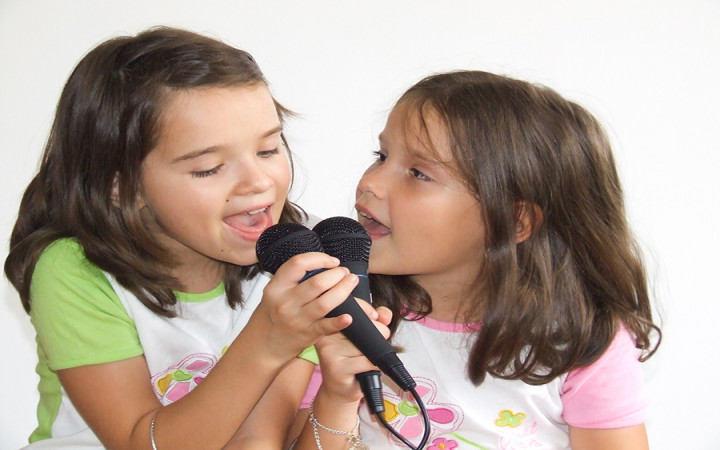Today’s Wonder of the Day was inspired by Elisha from Surrey, DC. Elisha Wonders, “Why can some people sing well while others can't?” Thanks for WONDERing with us, Elisha!
We were headed out to the Wonderopolis pasture the other morning when we overheard some interesting sounds emanating from the barn:
Pig: Do re mi fa so la ti…*ack!*
Cow: What's that sound? Did someone step on the cat?
Cat: No, I'm fine. The pig is trying to sing again.
Pig: I'm sorry. My voice is just a little hoarse.
Horse: What?
The horse was confused and the pig started squealing again, so we made our way out to the pasture. But we thought about that poor pig the rest of the morning. It seemed like she couldn't carry a tune to save her life.
Why is it that some people can sing better than others? And, unfortunately, some of us can't seem to sing at all! If you've ever watched American Idol or The Voice, you know this to be true. So what's going on with our voices?
Technically, singing is something that we can all do. Using our vocal cords, we can produce some kind of tune. Whether that tune is pleasing to the ear or not…well…that's another matter entirely.
Even if you're not a judge on a reality singing competition, bad singing is not difficult. We all have different tastes in music, so you might hold different opinions than others about what constitutes great singing.
Bad singing, though, has a scientific definition. According to scientists, bad singing can be identified as deficient in pitch accuracy, timing, and/or note memory, which includes how long notes are sustained and lyrical accuracy.
Studies show that most people do just fine with timing and note memory. Where most of us fail is in the area of pitch accuracy, which is also known as intonation. Experts estimate that as many as 60% of us can be classified as bad singers because of pitch accuracy problems.
So why can't we hit the right notes? Scientists believe the fault lies in our brains. We tend to have the ability to hear the right notes, but our brains send faulty instructions to our vocal cords when we try to reproduce those notes. They call this error imitative deficit.
Is there any hope for bad singers? Scientists would say there is, but remapping the brain isn't easy. It requires practice and lots of it. With help from a vocal coach, patience, and potentially years of practice, bad singers can eventually learn to hit the right notes.
If you're a bad singer right now, could years of practice lead you to the top of the charts? Not necessarily! There are already plenty of good singers out there, but very few turn their voice into a profession.
Those that do were probably just born with a great singing voice. Many genetic factors play a role in determining what your vocal cords will be like. In addition, the exact shape and size of your body's natural resonators, such as your mouth, throat, and nasal cavities, will also play a big role in determining what your natural singing voice sounds like.
If you're not born with a voice like Adele or Frank Sinatra, that's OK. Those kinds of vocal stars are rare. Use the voice you were given to do great things. And if you love to sing but you're a bad singer? Sing anyway! Do what you love and practice, practice, practice. Eventually you'll get better!




